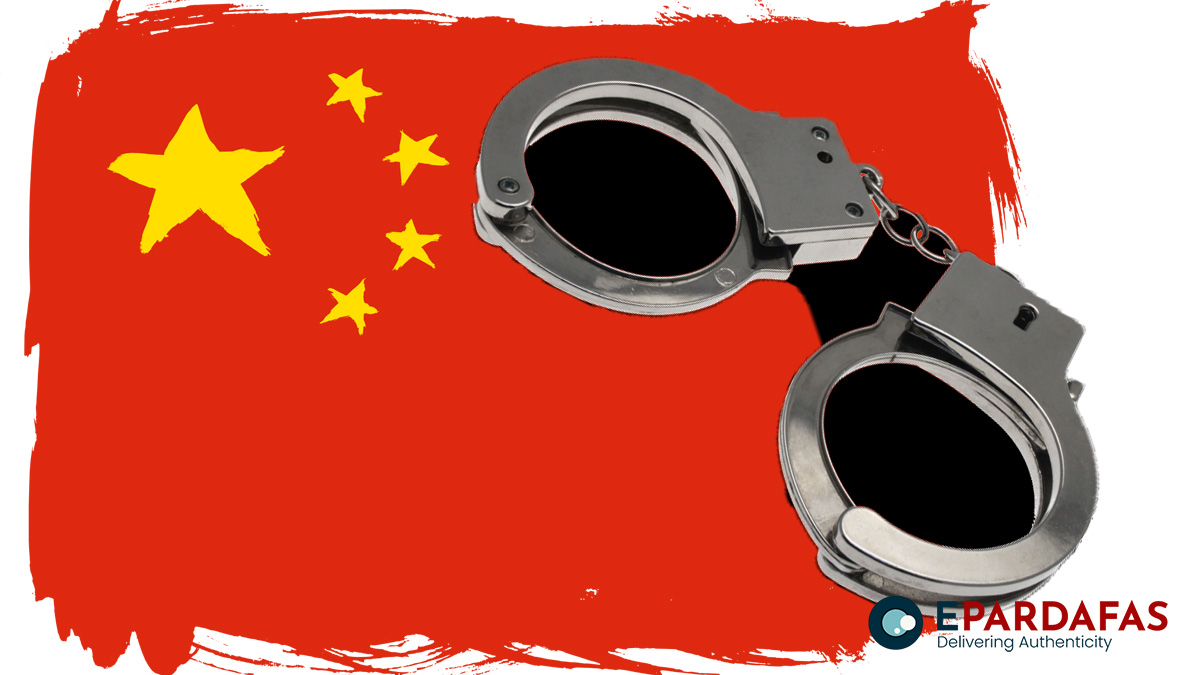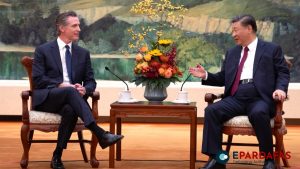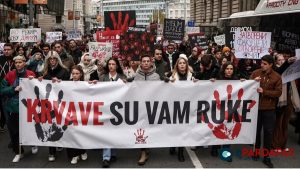
Hong Kong Police Make First Arrests Under New Security Law

Hong Kong police have arrested six individuals under a newly implemented security law, accusing them of “acting with seditious intention” by publishing posts on social media. This marks the first use of the controversial legislation, which critics argue Beijing is leveraging to curtail the city’s remaining freedoms.
The arrests, targeting individuals aged 37 to 65, took place on Tuesday as part of an operation led by the national security police. Authorities conducted searches of the suspects’ homes, seizing electronic communication devices and other items allegedly used to disseminate seditious messages, according to a police statement.
One of the arrested, a woman already in custody, was accused alongside the other five of anonymously posting seditious content online in the lead-up to an “upcoming sensitive date.”
At a subsequent press conference, Hong Kong’s top security official, Chris Tang, revealed that among those arrested was Chow Hang-tung, a well-known barrister and activist. Ms. Chow has been detained since 2021 on multiple charges, including those related to her involvement in organizing a candlelight vigil commemorating the 1989 Tiananmen Square massacre.
Authorities did not provide details of the content of the posts but alleged they were intended to “incite hatred” against the Beijing regime, Hong Kong government, and judiciary, and to encourage netizens to engage in illegal activities. The identities of the other five individuals have not been disclosed.
The arrests under the new security law, locally referred to as “Article 23,” have intensified concerns about the erosion of freedoms in Hong Kong. The legislation, introduced in March, grants the government expansive powers to address perceived threats to its rule, including treason and insurrection, punishable by up to life imprisonment.
Seditious acts under this law now carry a maximum sentence of seven years, up from the previous two-year maximum.
The “sensitive date” in question likely refers to June 4, the anniversary of the Tiananmen Square massacre. On that day in 1989, Chinese troops and tanks brutally suppressed unarmed student protesters advocating for democracy, resulting in thousands of deaths. While the massacre is heavily censored in mainland China, Hong Kong had been the sole Chinese territory holding large-scale public commemorations until recently.
Since the imposition of the national security law in 2020, Hong Kong has experienced a rapid shift towards authoritarianism, with many pro-democracy figures either imprisoned or in exile. Authorities have actively suppressed Tiananmen Square massacre commemorations, including raiding a museum dedicated to the victims in September 2021 and imprisoning key vigil organizers.
In 2021, citing COVID-19 restrictions, Hong Kong officials officially banned the annual Tiananmen vigil, further stifling public remembrance of the massacre.
The latest arrests underscore the heightened crackdown on dissent in Hong Kong, as the government continues to tighten its grip on the semi-autonomous city.












Comments